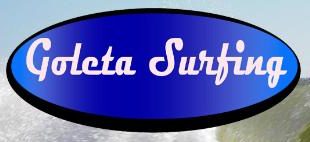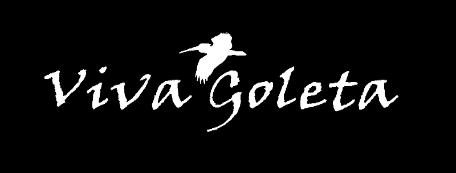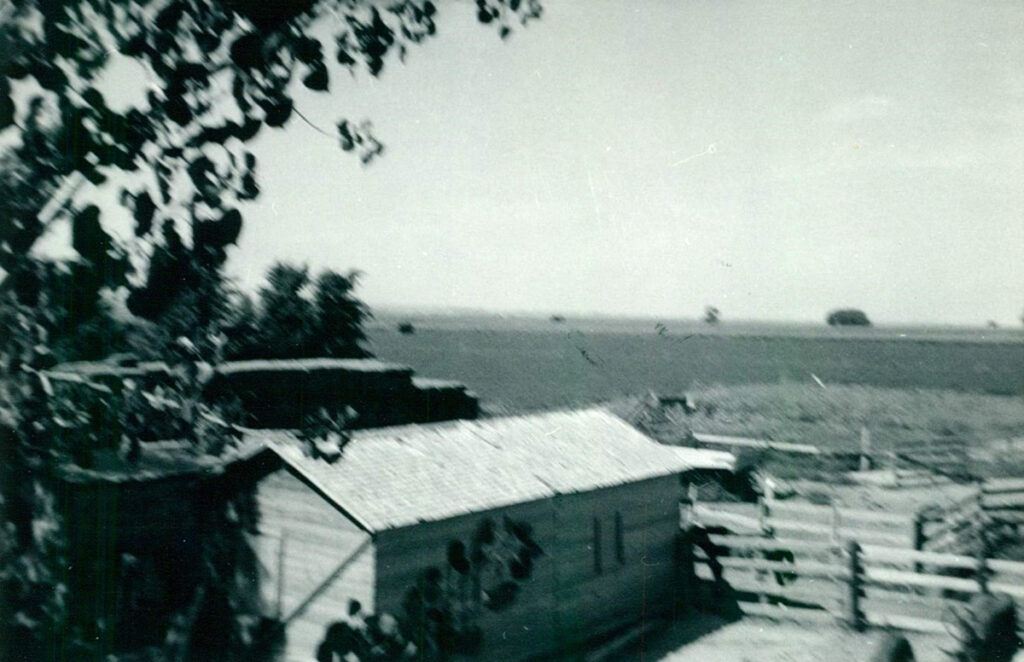
Born in the wide expanses of Colorado in the late 1940’s, James Powell loved being in the country. He learned to love the outdoors, living on this ranch of over 300 acres. One of his many chores in those days was to keep the coyotes out of the chicken coop. When James moved with his family to Santa Barbara in 1957, he managed to keep living on or near ranches. He spent a lot of his time at the El Bosque Ranch, Hope Ranch and the Hollister Ranch.
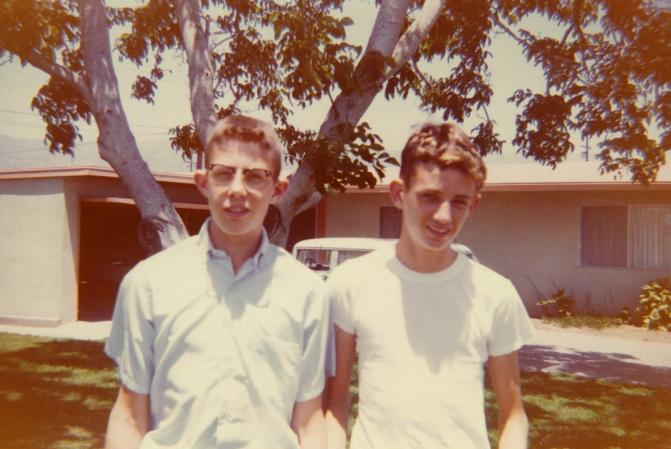
Jim, on the right, and his brother John, were now Californians, and at the
beginning of a new era. The ocean was about to consume their lives….
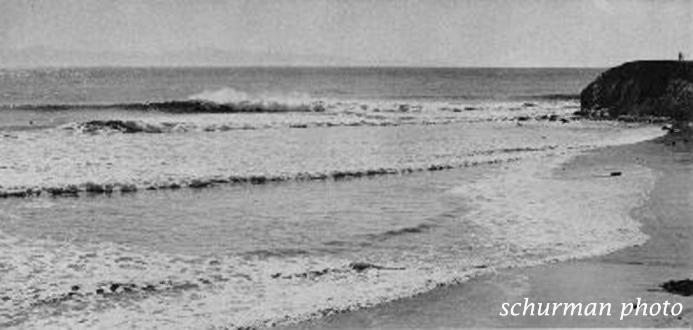
Before long, he found himself at Campus Point, learning to surf. His older brother, John, had bought a used Gordie. “My brother and I had one board between the two of us. We took it down to the poles in the summer and stood in knee-deep water with it. When a ripple appeared, one of us would give the board a little push forward and jump up on the board. The waves were maybe ankle or knee high.”
They soon considered themselves Campus locals. Some of the other guys who
surfed campus then were Nick “Huchman” Redman, Glen Merrifield “the Ravin’ Baby Ese Animal Gargantua Cabron.”( Love those nicknames!) When winter came, they saw what Campus was really capable of. Kemp Aaberg and some other older guys from the university would occasionally stop in and show them how it was done.
Jim and his brother would go down to Rincon with their dad to watch the big boys surf, and they got the stoke.
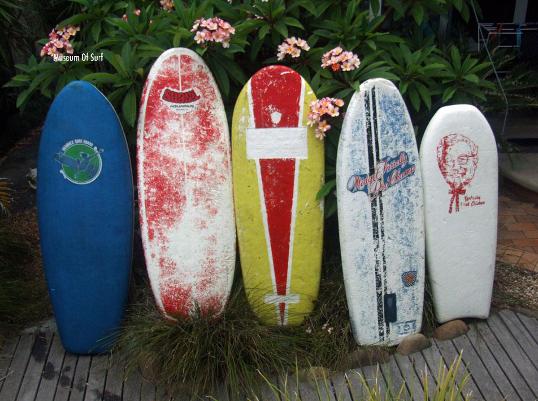
Jim’s first board didn’t have any glass. It was something like these beauties shown above. His dad bought it at Thrifty Drug store! It was only about 7 feet long. “They were not short boards in the sense of short boards, in fact the shape was a joke and the foam was weak. Also it would melt if you attempted to glass it. They snapped easily and they had no glide, so catching waves was all muscle.” They were also almost impossible to knee paddle, so that meant always being wet, and this was pre wetsuit days. “A concept good for martyrs.” Given all that, he was always borrowing boards from buddies and girlfriends. Until Bobby Hazard kindly sold him his first real board for fifty bucks. “It was a beauty”.
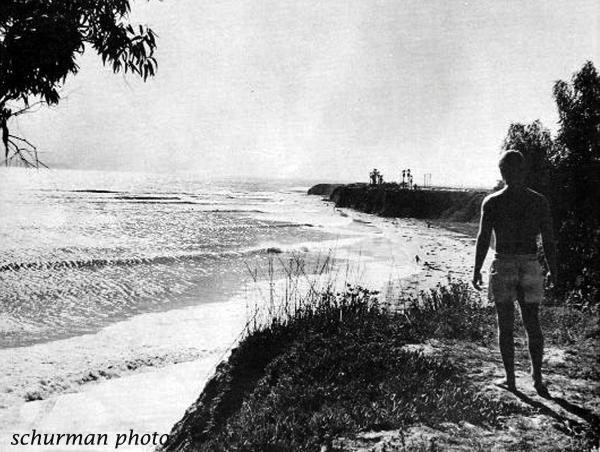
James remembers- “ We had no wetsuits then, though you could get a diving suit from the Diver’s Den. We built huge fires at campus to warm up. The fire served a kind of tribal function. So many stories told around those fires.” They occasionally burned tires to get a fire going after a cold surf, as so many early surfers did, but the best thing to have was a milk carton. “On a rainy day you could get wet wood burning by igniting a milk carton. But building the fire was an art form. It was considered bad form to use a milk carton on dry driftwood. Using more than one match was also bad form. You had to layer your kindling with care.” Sounds like science…
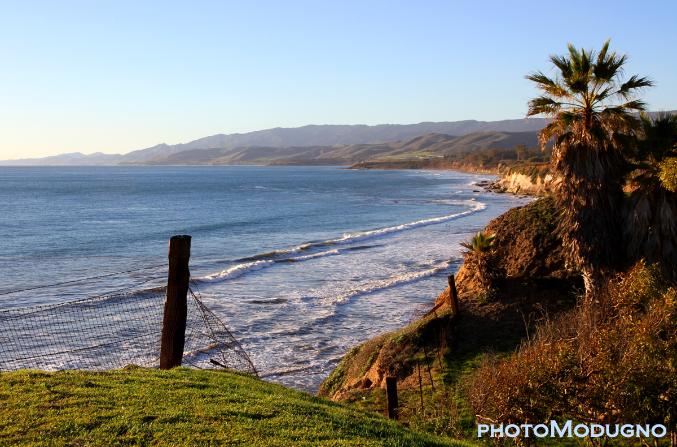
In the 1950s, not many surfers frequented breaks on the Gaviota Coast. During swells, Rincon was the big draw. Hammonds and Campus had tiny crews. One or two at Sandbar was a big crowd. Some other guys were drawn to the Hollister Ranch, but the coast between Goleta and the Ranch was largely overlooked.
On low tides, Powell began riding his bike up the beach, exploring and hunting for new breaks. One of the first he discovered was Naples, but soon he started surfing other spots up the wild coast. Once he located a spot on his bike, he would drive back up with his board. Back then you could park right up in the oil fields at Naples and other spots. Eventually, though, they stopped letting surfers park there, so then they had to park along the highway and hike in.
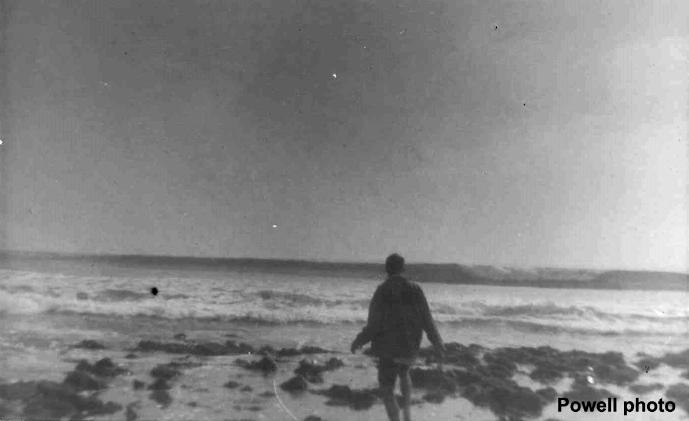
Stoked groms.
In Junior High, James considered himself a Campus local. Then he met some Hope Ranch guys at school and started surfing at Hope Ranch. Before long, he became friends with some Pit locals, Mike Haskell and the Hazard brothers. The tribes all started to mingle. The Pit guys started hanging out with some Hope Ranch gals, and the Hope Ranch guys got interested in some Pit gals. They would all go surfing and hang out together, one big happy clan. This was taken near Hope Ranch, probably at the Hazard’s place on Las Positas Road. The lineup, from the left is Don “Whooper”Robertson, James”Slim” Powell, Danny “Piss Ant” Hazard, Some Guy From Out of Town Who Nobody Remembers, Jim’s brother John”The Ace” Powell (in glasses),and Alan Hazard.
Check out the fins on those logs…
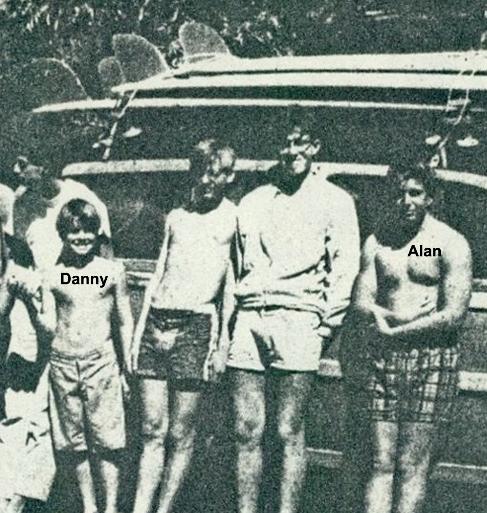
A word about the Hazards, Danny and Alan shown here.
The Hazard household was always teeming with surfers. Their sister supplied everyone with trunks. Miraculously, Jim’s brother still has his Hazard trunks! Mrs. Hazard was always trying to fatten Jim up with blackberry pies. Jim rarely hung out with Alan, and almost never with the oldest brother, Bob, who surfed up at the Ranch mostly. Between the three of them, they had an immense store of wave knowledge. The Hazard kids were smart, talented, and really got to live the best of Santa Barbara surfing and just Santa Barbara in general.
Bobby Hazard sold Jim a Yater he’d owned for some time. One of the most beautiful boards Jim had ever seen. The lines… Everywhere he went, people would comment. One day Hammond’s was big and John Peck borrowed the board. Peck said it was the fastest he’d ever surfed. Bobby also sold Jim his 1949 Dodge Dart, with synchromesh transmission, for 50 bucks. Behind the front seat, a mattress all the way back and through the trunk. Jim drove it for years. He would drive it up the railroad tracks to get to some sweet spots. Eventually, he sold it to “Whooper” for 50 bucks, and he drove it for years! Whooper didn’t want to bother with a key, so he ripped out that switch and replaced it with a simple on-and-off switch. In Hope Ranch, that vehicle surely raised some eyebrows….
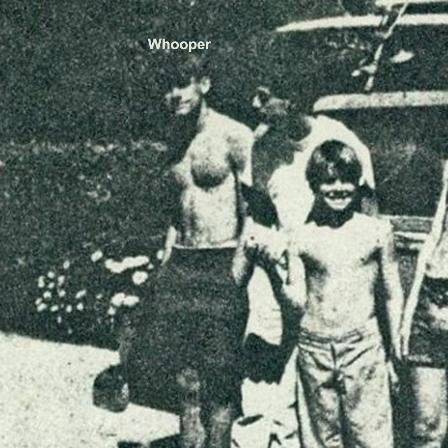
One more note about the crew-
In high school the boys had a contest to see who could wear their same pair of corduroy pants every day without washing them. After two years, Whooper won. (If you consider wearing pants that haven’t been washed in two years winning…)
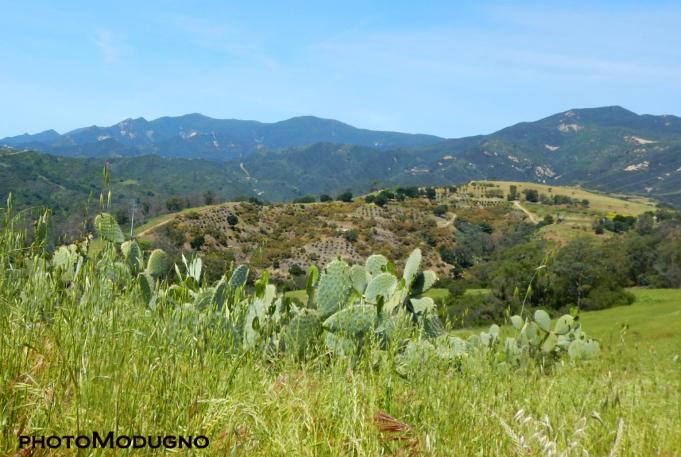
Around this time Mike Haskell’s parents owned a ranch in the hills above Haskell’s beach. Jim and the boys used to hang out in the cottage up there. The ranch featured an ailing avocado orchard and a panoramic view of the coast.
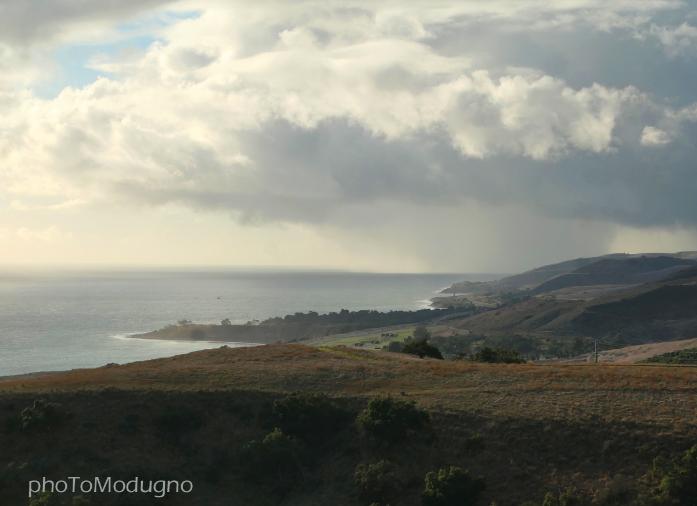
The boys had spent the night at Haskell’s ranch and they woke up to see a healthy swell rolling in. (That’s how you used to get a surf report, by looking.) They started up the coast and ended up at El Capitan. It was the first time, to Powell’s knowledge, that anyone had surfed there. It was Mike Haskell, Powell, his brother John Powell, maybe Don Robertson, and Steve Neal. They thought the one guy that may have surfed it before them was Benny Hartman, who lived at El Capitan Ranch. It wasn’t huge, but it was clean, and it left an impression on the young surfers. They called the spot S – Tubes , short for Secret Tubes.
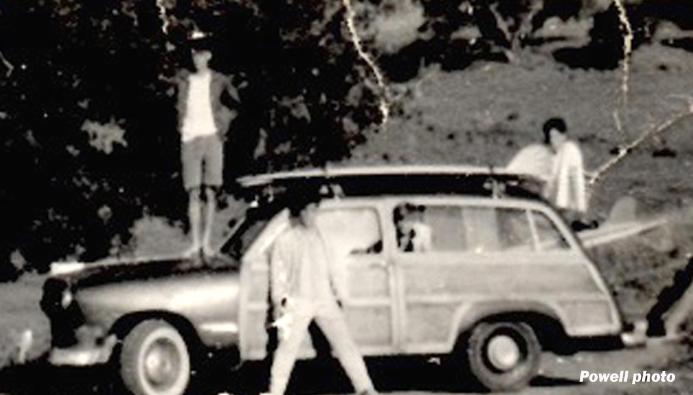
As Jim got older, he and his crew got bolder, constantly searching for new and exciting places to surf. His older brother, “Ace” had the ultimate surf vehicle, a woody. Soon they were expanding their horizons down the coast to the Ventura Overhead and Rincon. Rincon was not that crowded yet, so very few guys even thought about going north to surf.
The guy standing on the hood is Don “Whooper” Robertson. The “Ace” John Powell leaning against the door with Mike Haskell’s head peering out the window. And “Slim” Jim Powell hanging out the back. This shot was taken up at the gate near the Haskell’s Ranch up Farren Road..
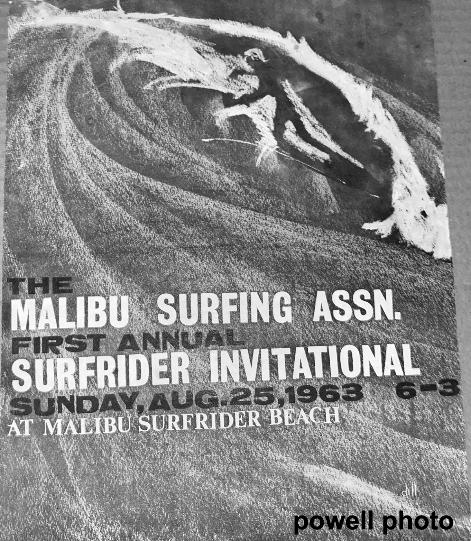
Together with the Pit guys in 1963, the Hope Ranch Surf Club decided to enter the First Annual Malibu Surfing Association Surfrider Invitational. They decided that rather than just having their little tribe in the contest, they should invite the best Santa Barbara surfers to compete for their club.
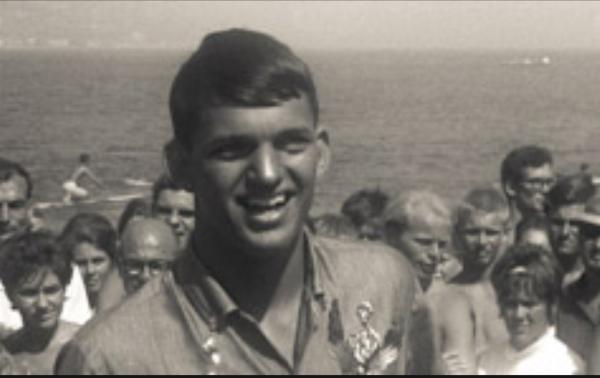
The most amazing surfer on the team turned out to be John Peck, whose family had just relocated to Hope Ranch from the Islands. “We drove down to Malibu with him, to see how he would do on those waves. His style was cat-like. The smoothest I’d ever seen. He ended up placing second, after Wind-&-Sea’s Joey Cabell. I don’t know why we didn’t enter Shaun Claffey, because he probably would have placed first. Danny Hazard and I were on the paddling team. For practice, I used to paddle from Hope Ranch to the Pit and back.”
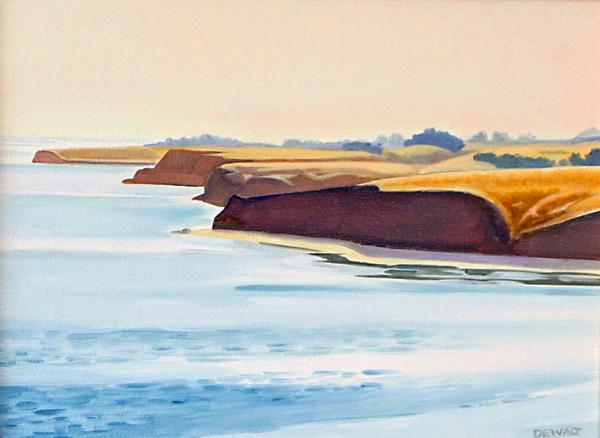
Jim recalls-
“The Hollister Ranch was a working cattle ranch. On its 20 miles of private shoreline broke some of the best waves in the world. Some older surfers had formed an association called the Santa Barbara Surf Club, and worked out a deal with the Hollister family allowing exclusive beach privileges to its members. Membership was fixed at 60, meetings were presided over by Arlen Knight and held upstairs at what is now Wells Fargo, on Anacapa.”
“The only way the members of our tribe finally got into The Ranch was to put our names on the club waiting list and wait in purgatorial impatience until some member would drop out of the club, or get killed in Vietnam. Then we would be voted in, and the Golden Doors of Heaven would open for us.”
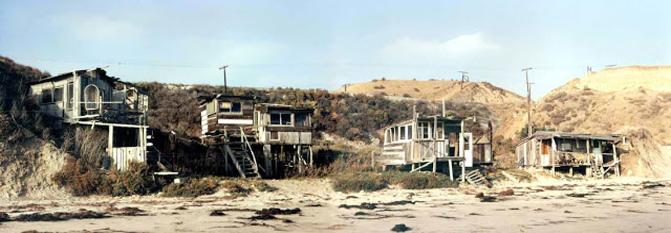
The club members built beach houses of mostly driftwood and would sometimes just disappear to the Ranch for a week or more of pure surfing and living off next to nothing. Minimalism.
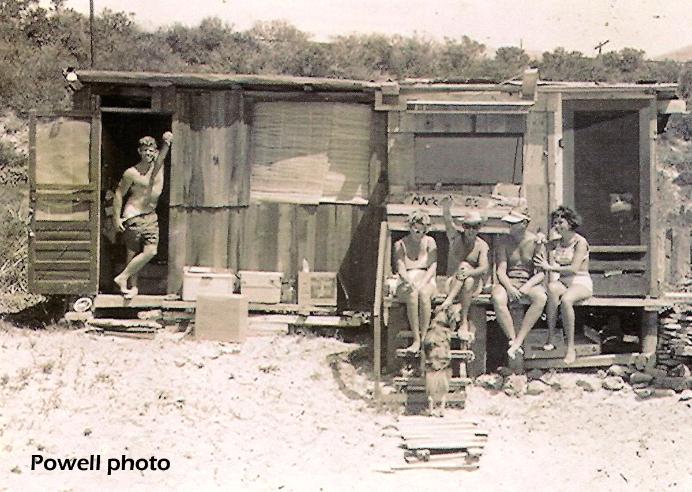
The shacks became a real gathering place. Lots of surfing legends were regulars. George Greenough was up there a lot. Being a resourceful fellow, he would paddle out on his air mattress to look for food. When he’d spot a halibut on the sea floor, he’d dangle a fishing line right down in front of it. Once he got a bite, he let the fish tow him until it tired, and then, there was breakfast, lunch and maybe dinner. Rennie Yater was also a regular. Some of the guys started calling Yater “Mr. Clean.” That was a result of Yater’s pared-down, functionalism in all things. After the sixties, we would have called Yater’s way “Zen.” The “Mr. Clean” nickname may also have been because he was responsible for keeping the surfers out of trouble up at the ranch.
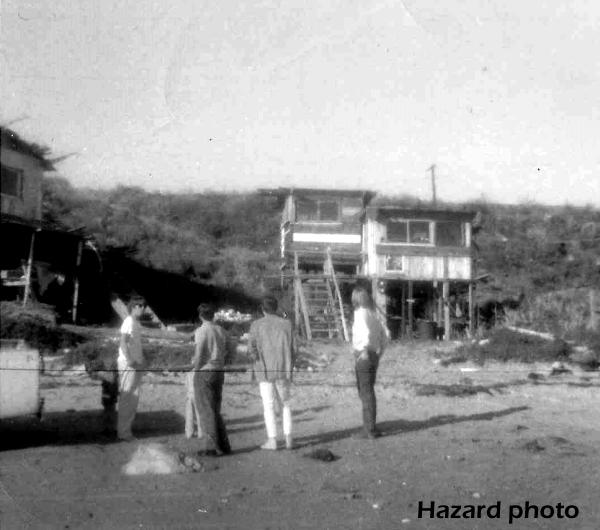
Jim had signed up on the waiting list to become a Surf Club member and in a few years, his dream came true. He was finally allowed into the Ranch. Seems amazing today that the cattle ranchers at Hollister would allow these guys to build these big ramshackle houses. Never happen in today’s lawsuit crazy world…. Pictured here is Bob Hazard with some of his crew. These guys were a couple of years older than Jim and attended Santa Barbara High.
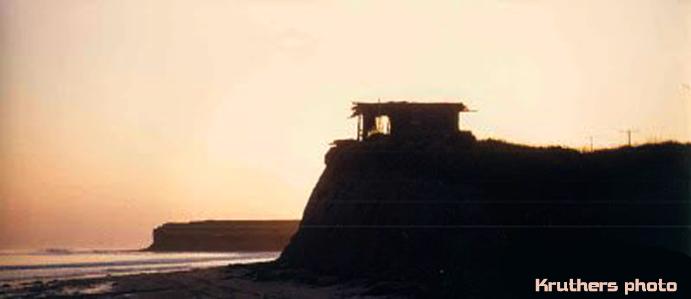
The Hazards had built their own shack at a different spot. Mike Haskell’s dad, who owned a construction business in town, arranged for the train company to drop off some of the wood for their shack. When Jim slept over, it was almost always at the Hazard’s shack. Many of Jim’s most memorable Ranch experiences were due to the Hazards’ hospitality. Jim recalls- “If a bunch of guys were spending the night, we’d build a fire on the beach, cook, eat, and sit around and talk. This was important to me especially during the Vietnam era.
As a pacifist, when I was in internal exile at the Ranch, I was able not only to remain near or immersed within the Pacific, but enjoyed the support and camaraderie of a group of surfers sympathetic to the stance I had taken.”
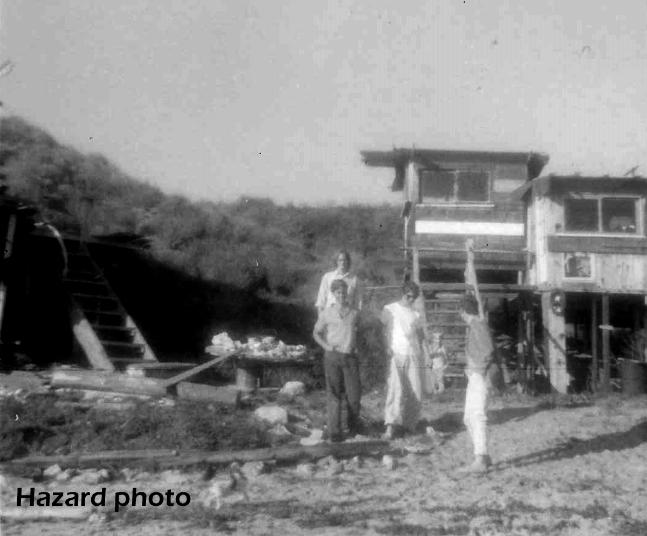
During the Vietnam war, a lot of the Ranch guys had shipped off overseas, so weekdays it was easy to have the Ranch all to yourself. During this time, Jim had a friend drop him off for a few days of solo surfing. He stashed his gear in the Hazards’ shack and headed out for a surf.
The tide was low, and as he waded out with his board he felt a sharp sensation. He had practically sliced off the big toe of his right foot. It was bleeding like crazy. He made it up to the shack, then staunched and elevated the wound. (This was a long time before mobile phones.) In a few minutes, he spotted a VW Bug racing down from St. Augustine. It was Dewey Schurman, who had been surfing the upper Ranch.
Thankfully, he gave Jim a ride to the hospital.
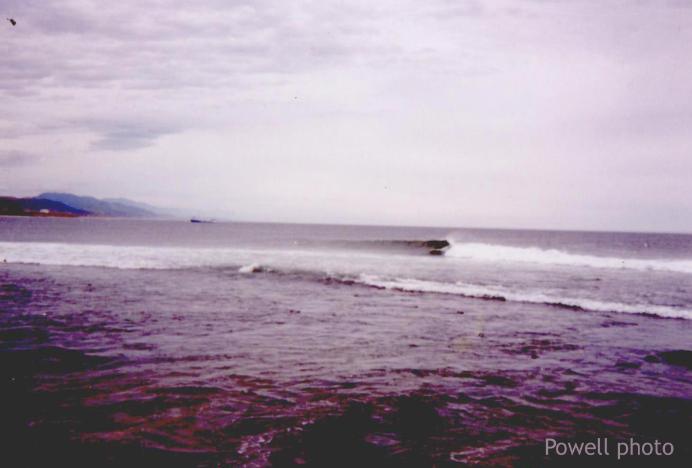
Around 1972, the Surf Club lost ranch privileges. Jim began going up with a former Navy Seal, in an inflatable. But the Seal lived all the way up in Cayucos, and Jim wanted to go in more often. Jim began having dreams about going in from Jalama. Those dreams stemmed from one trip he took up to Jalama when he was a kid. Danny Hazard, Whooper, Jim, and his brother really wanted to surf the ranch, so Danny said, “Well, let’s walk in.” So they started walking down the ranch road with their logs. Obviously, they didn’t get far. It’s about a six mile hike, not to mention the ranchers….
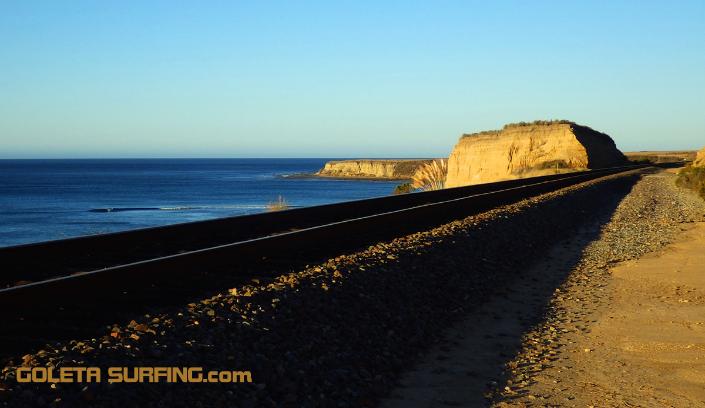
Where there’s a will, there’s a way, so Jim started biking in from Jalama on the railroad easement. He stashed a couple of boards near Govies and biked in regularly for years. Bringing the boards in was a chore. He timed it for the afternoon, when there was a wind and he used the board as a kind of sail.

One time he biked in and as he was crossing over the tracks, he fell and broke his arm. The swell was good, so he kept on going, figuring he’d use his wetsuit as a splint. He hid his bike, struggled down the gully that opens to the beach, pulled on his wetsuit, and very painfully, paddled out. He caught one wave and decided that would be the only one, riding the white water in. As he started up the slope of the beach, a rancher drove down and pointed back out into the water. So he had to paddle out again and wait for him to split. Man, that’s stoke….
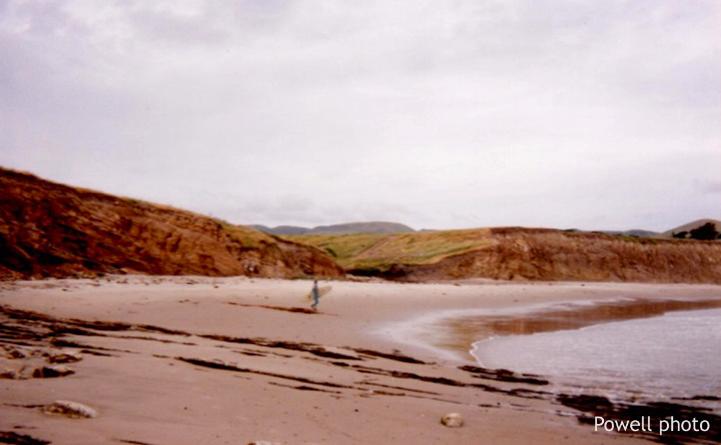
These photos are of one of the few times Jim took someone along. He had told his nephew he was going in and he wanted to meet Jim there, so he gave him the vaguest of directions. Just as he was about to head home, the nephew shows up with a friend. There was a swell, so they decided to spend the night on the beach. Jim didn’t have any food, but they had a large coke and some chips, so they slept on the sand. During the night, wild pigs came down onto the beach, as they are known to do at the ranch, and started rutting around in the sand all around the boys. Made for an uneasy night’s sleep. They were up at the crack of dawn and out in the water.
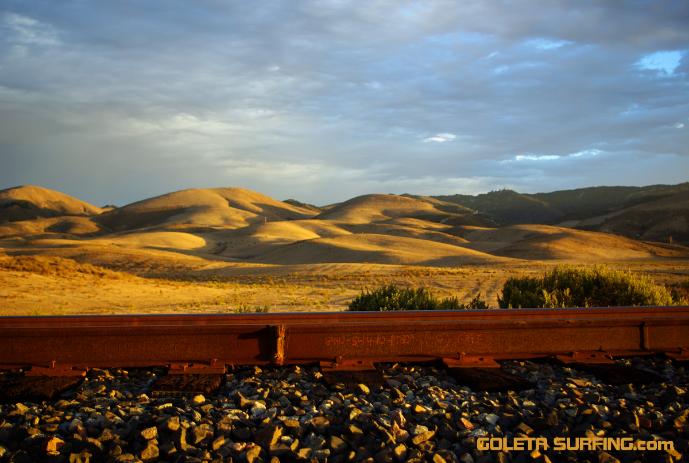
Running solo up at the ranch, you will surely encounter nature.
One time Jim stashed his board and was riding along the tracks when he came across a freshly disemboweled pig. Hmmm… He kept warily on his way and soon spotted something up ahead. It turned out to be a mountain lion. He kept riding toward it, and it began loping along and condescended to swing its head around far enough in his direction to size Jim up. Then the lion veered suddenly off to the left. Jim was praying it wasn’t the cat’s flanking strategy. He scooted up an embankment where the tracks cut through a hill, and he was gone. Luckily, he was probably more interested in his fresh kill than some skinny surf rat…
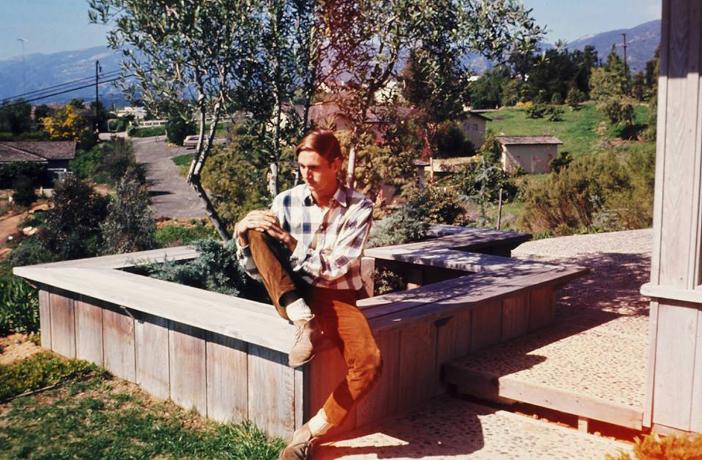
Jim looking dapper in his rust corduroys and desert boots.
When he was in high school, it was difficult to hold down a real job, since he was a dedicated surfer. Whenever a swell came booming down the coast, he had to be in the water. After he graduated in 1964, he went to UCSB for a while. When the nearly inevitable call came to serve in the Vietnam war, Jim’s father talked him into joining the Naval Reserve. He joined, but then suddenly disappeared, and rode the rails with a friend for a while. When he returned, he reported for active duty in the Navy. Jim walked on the Naval Base at 32nd Street in San Diego, looked around, turned around, walked off base and caught the next Greyhound back to Santa Barbara. From there, he walked down to West Beach, hung a right and started walking to his final destination, the Hazard’s shack at the Ranch.
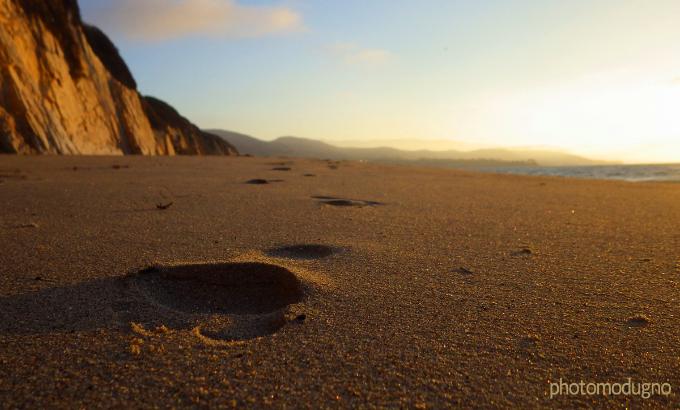
What happens next could be described as a life changing journey while in political exile. Jim was “disregarding the mandate to fight”. He believed the war was an unjust one, and he chose not to participate. He chose to disappear, the only trace of his existence left were footprints in the sand.
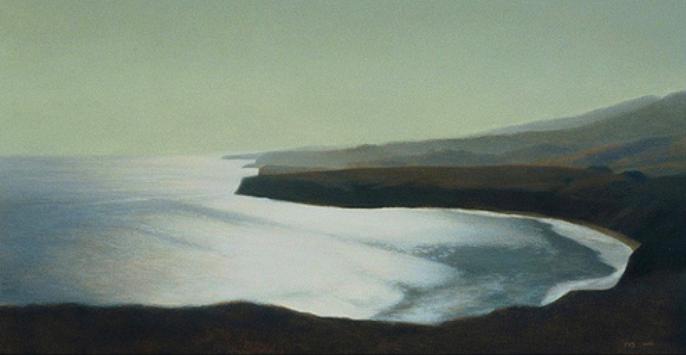
He set out on a journey of “ever-contracting and expanding vistas”, rounding each headland only to find a new one revealing itself to him. “Rounding a headland that had for hours defined the furthest extent of the terrain—its rocks and vegetation growing more distinct with each advancing step—suddenly is forgotten and a new, distant, series of headlands, falling into the sea, beckon.”
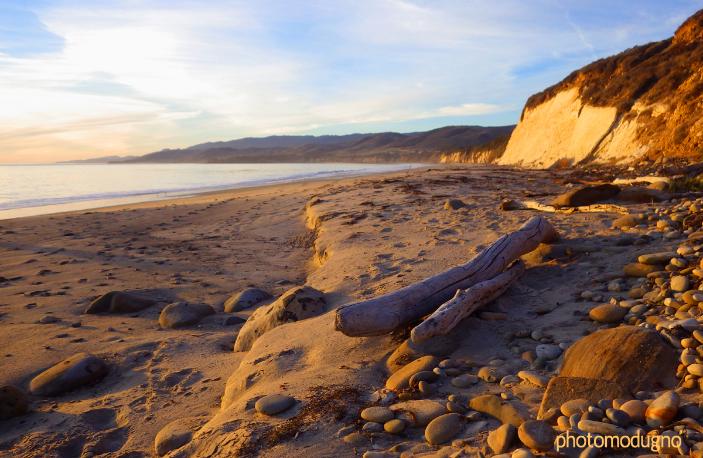
Rounding a remote point, he beheld the shimmering bay curving to the boulder-strewn sands of El Cap Point and its creek bed. Up a canyon, an avocado grove provided a much-needed meal. Jim had heard about a hippie commune up another canyon, across the highway from a surf spot called Lorainnes, so he headed that way. He spent some time there, ate nothing but brown rice and met an array of unusual people, including Snake Man, who lived on the ground, wore a garment of live snakes, and was on a mission to enlighten the universe. Jim stole away in the early morning and continued his journey up the coast.
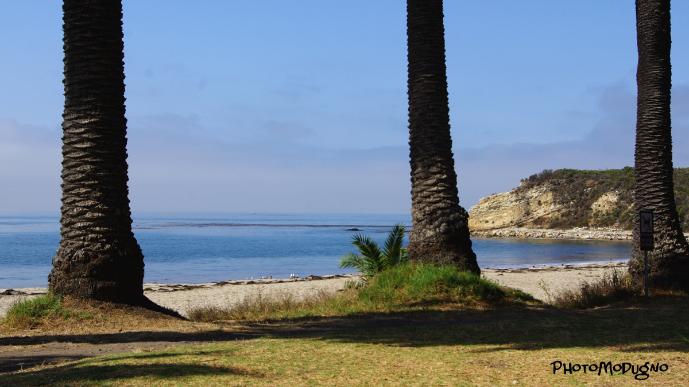
“Continuing up the coast, I soon stood among the palms fringing the bay of
Refugio Beach, black fronds stirring against the eastern glow and then catching
the full golden wash of morning sunlight, shadows stretching across the sands to
the undulant blue of the waves. Out in the bay a white schooner swung on her
moorings, the smell of bacon and eggs from a dozen campfires, and I lay down
beneath a palm, placed my head on my bedroll, and fell into a deep sleep. “
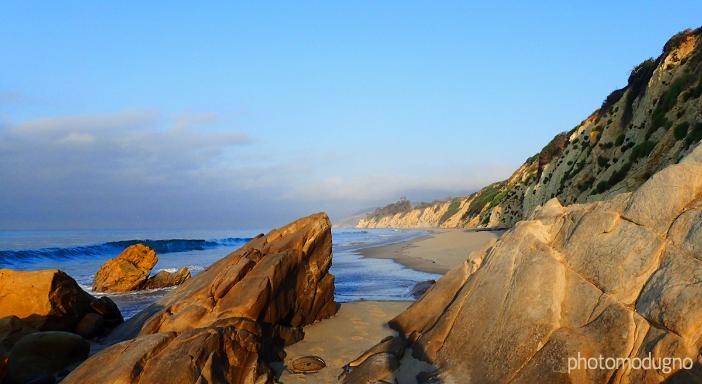
He continued around the point and up past Tajiguas, to a now famous Super Panga landing spot. Here he encountered an elderly bearded man with long white hair and brown leather skin, dancing rhythmically on the beach while lifting boulders over his head. He lived in an old school bus on the bluff and invited Jim up for a papaya and banana breakfast, where he told stories and showed photos of his former life as a traveling strongman. Jim got back on the beach and continued on his northward quest to reach his destination of peace and tranquility.
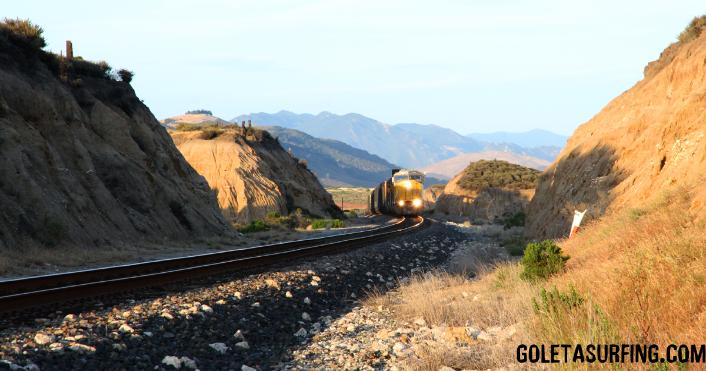
Even though Jim was a member of the SB Surf Club, he didn’t want to pass through the gate at the Ranch and reveal his whereabouts. He knew back in town men in grey suits were knocking on doors, searching for him. So he continued on the beach as long as he could, until the high tide forced him up onto the tracks. As he walked along the tracks, stepping from railroad tie to railroad tie, his tired mind was drowning in thoughts of his uncertain future. Where would he end up? Canada? Mexico? Prison? Would he ever see his family again? Why did there have to be wars? Lost in his thoughts, he didn’t hear a freight train charging around the bend just as he was crossing a trestle, 100 feet above a canyon floor. The engineer blew his horn, and Jim just reached the 3 foot escape platform in the nick of time.
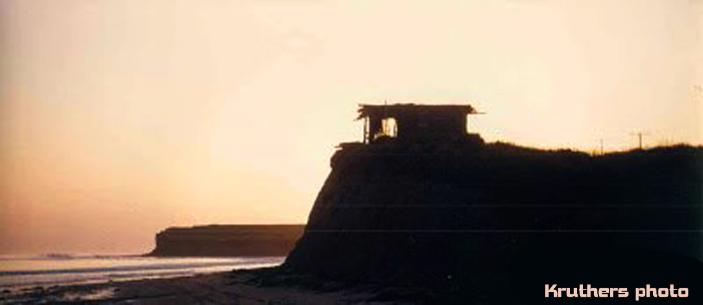
He finally reached the Hazard’s shack just as a powerful swell was growing in the water, but Jim’s mind was too preoccupied to care about waves or surfing. His focus was peace, quiet, silence. Eventually he realized he couldn’t spend his young life hiding at the Ranch. He got back to Santa Barbara and bummed around town for a while. One day, he spotted his parents and his sis walking into McDonalds on State Street. He felt sad and alone. After a few weeks of self-imposed exile, Jim went home, reported to the Navy, was labeled a pantheist and spent some time in the brig. While in the Navy jail, he read Asian literature and his life began to change.
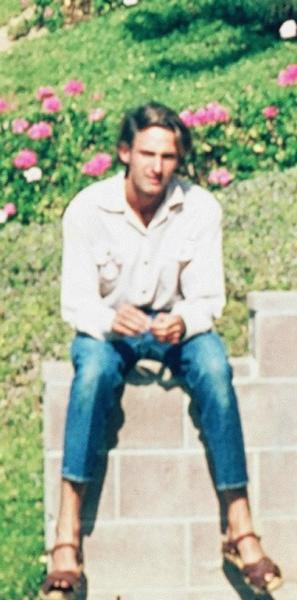
Jim was lucky enough to have lived and surfed in the Golden Age of Goleta Surfing. Unfortunately it coincided with the Vietnam War. His story is probably quite similar to many other young surfers of that era. Thanks Jim, for sharing some of your stories with us. You can read more of Jim Powell’s excellent writing at these links-
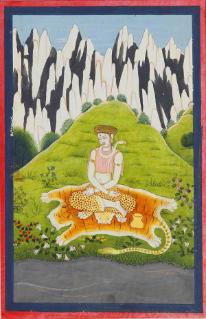
To read Jim’s blog.
Click Here.
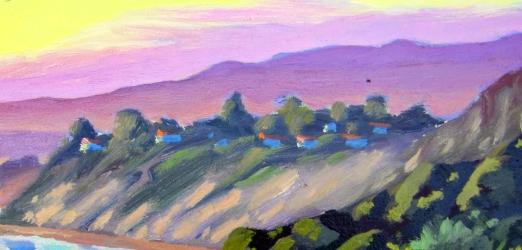
Read his memories of Hope Ranch Beach.
Click Here.
About this page, Jim says- “Sorry there are not more images to share. We were living in a more word-oriented, less image-intensive era. Surfing, especially, had not yet bowed to Image. Surf shops sold surfboards. There was no surf wear. Everyone wore white Penny’s t-shirts. You would not be able to find a t-shirt anywhere with a surf logo, at least not in Santa Barbara.”
This page dedicated to John “Stein” Lenorack,
the Name Giver to all these stoked groms.

